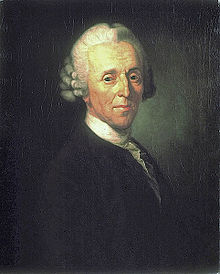Christian Gellert
| Christian Fürchtegott Gellert | |
|---|---|

Christian Fürchtegott Gellert. Painting by Anton Graff
|
|
| Born |
4 July 1715 Hainichen, Saxony |
| Died | 13 December 1769 (aged 54) Leipzig, Saxony |
Christian Fürchtegott Gellert (4 July 1715 – 13 December 1769) was a German poet, one of the forerunners of the golden age of German literature that was ushered in by Lessing.
He was born at Hainichen in Saxony, at the foot of the Erzgebirge (Ore Mountains). After attending the famous school of St. Afra in Meissen, he entered Leipzig University in 1734 as a student of theology; in 1738, when his family could no longer afford to support him, he broke off his studies and for a few years became a private tutor. Returning to Leipzig in 1741, he contributed to the Bremer Beiträge, a periodical founded by former disciples of Johann Christoph Gottsched who had revolted against the pedantry of his school. Owing to shyness and poor health, Gellert gave up the idea of entering the ministry. However, he finally completed his magister degree in 1743 and qualified as a university lecturer in 1744. In 1745 he established himself as a Privatdozent in philosophy at the university of Leipzig, lecturing on poetry, rhetoric, and moral philosophy. In 1751 he was appointed extraordinary professor of philosophy, a post he held until his death at Leipzig in 1769.
Gellert was esteemed and venerated by his students, and others who knew him, due in great part to his personal character; he was known to be unflaggingly amiable and generous, and of unaffected piety and humility. He wrote in order to raise the religious and moral character of the people, and to this end employed language which, though at times prolix, was always correct and clear. He thus became one of the most popular German authors, and some of his poems enjoyed a celebrity out of proportion to their literary value. His immensely successful collection of fables and stories in verse, Fabeln und Erzählungen, first published in 1746, with a second part appearing in 1748, established his literary reputation. A comparably popular collection of religious poems and hymns, Geistliche Oden und Lieder, appeared in 1758.
...
Wikipedia
